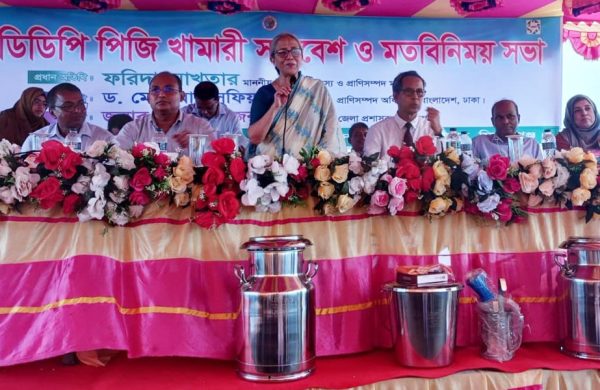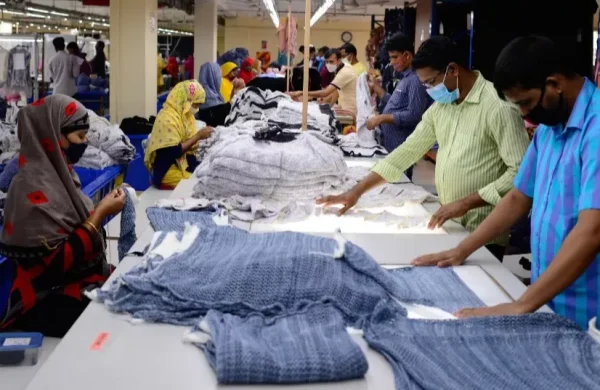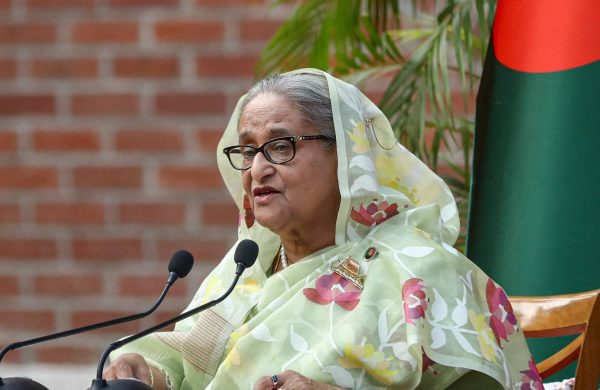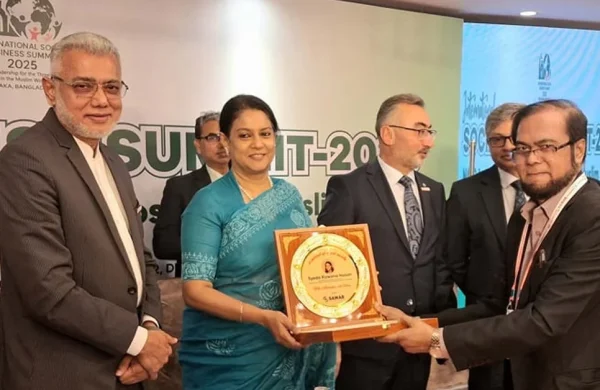How S Alam family grabbed multiple banks
- Update Time : Wednesday, August 28, 2024
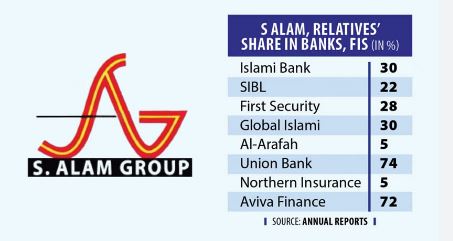
TDS Desk:
The Bangladesh Bank is supposed to protect customers’ interests, but it did not do so when it permitted Mohammed Saiful Alam and his family to seize multiple banks and funnel enormous sums as loans.
Alam, the chairman of S Alam Group, and his family members used the central bank’s special permission to unprecedentedly possess large shares of seven banks and two financial institutions despite prohibition by the Bank Company Act.
For example, they have a 30 percent stake in Islami Bank while the law caps such shareholding by a family in a bank at 10 percent. That allowed Alam’s relatives to take a total of Tk 25,000 crore loans from the bank with far less investment in it, official data shows. The actual amount is believed to be more than three times the official figure.
The Alams are the only family in Bangladesh with all members and some of their relatives sitting on the boards of several banks simultaneously. They deftly captured the banks’ shares as the central bank relaxed the rules for them.
Analysts and experts have condemned such a practice as “totally unacceptable and absurd”, as it has put the banks, and the entire financial sector at risk.
The experts have been calling for efforts to reduce family control over the banks for a long time. However, their suggestion fell on deaf ears with the central bank bypassing rules to let Alam and his family strengthen their control over the banks.
All the members of the family were directors of different banks until last week when the central bank dismantled the board of the Islami Bank to ensure good governance after the new interim government launched its efforts to fix the troubled sector as part of a broader reforms plan.
Alam is the chairman of First Security Islami Bank’s board while his wife Farzana Parveen is a director. Their son Ahsanul Alam, daughter Maimuna Khanam, and son-in-law Belal Ahmed control the boards of Islami Bank, Global Islami Bank and Social Islami Bank respectively. Alam’s brothers, sisters, and other relatives also sit on the boards of several banks.
The law bars a person with a significant shareholding in a bank from buying a substantial stake in another bank. The same rule applies to their family members and companies.
Alam, however, grabbed Islami Bank and Social Islami Bank in 2017 despite having significant shares of First Security Bank, and Union Bank.
A top official of the Bangladesh Bank confirmed that Alam’s family received the central bank’s approval to buy the stakes despite the banking regulator’s obligation to block the process.
The law states that not more than three members of a family are allowed to hold the directorship of a bank. A family and their firms cannot acquire more than 10 percent of shares jointly.
However, besides the 30 percent stake in Islami Bank, Alam’s family members and their firms together own about 22 percent of Social Islami Bank shares, 28 percent of First Security Islami Bank, and 30 percent of Global Islami Bank, according to the shareholding reports of the banks.
They also have 5 percent shares in each of Al-Arafah Islami Bank and Northern Insurance, and more than 70 percent in Aviva Finance and Union Bank each.
Shareholding data of Bangladesh Commerce Bank could not be obtained but the website of S Alam Group claims it owns the bank.
Toufic Ahmad Choudhury, director general of Bangladesh Academy for Securities Markets (BASM), described the control of Alam’s family over the banks as “totally unacceptable”.
Although legal restrictions were put in place to stop the family control in banks, S Alam had been allowed to wield its control over the banks for its own benefit, Choudhury said, referring to the loans taken by the Alam family and their relatives.
“The banking business is quite different. Depositors are the real owners of the banks,” said Choudhury, also a former director general of the Bangladesh Institute of Bank Management (BIBM).
An analysis of Islami Bank’s financial reports shows that the Shariah-based bank provided about Tk 25,000 crore loans to Alam’s relatives. Social Islami Bank showed nearly Tk 5,000 crore loans to them in its financial reports.
The other banks followed in the footsteps of these two banks. Officials of these banks, who requested anonymity, said the loans given to Alam’s relatives were bigger than what official data shows.
The total amount could be above Tk 75,000 crore from Islami Bank alone, one of the officials said.
A top official of a bank said many directors abused their power to save themselves from becoming loan defaulters by rescheduling loans year after year. So the criteria for directors should be changed in such a way that will not allow them to have their loans rescheduled when they face a default.
Data also showed how the S Alam family’s presence on the board affected the banks, all of which except Al-Arafah Islami Bank remain in the yellow zone – meaning their financial health is between “good” and “fragile”.
Fahmida Khatun, executive director of the Centre for Policy Dialogue, said this is “the best example of how a single family controls the banking sector”.
As the regulatory body, the Bangladesh Bank is responsible for allowing this to happen while the government gave S Alam a free rein over the banks by amending the laws, she said.
Despite repeated requests from analysts, parliament allowed the increasing presence of families on a bank’s board. It doubled the number of members of a family allowed on a bank’s board to four before reducing it to three amid huge pressure from analysts. On top of that, a director was allowed to remain on the board for 12 years.
“This is absurd,” said Fahmida.
When many family members remain on a bank’s board, they can influence the board for the benefit of people or organisations linked to them. In some cases, directors with a much lower stake also obtain such benefits.
For instance, Alam’s relatives received loans above Tk 25,000 crore from Islami Bank officially while their contribution to its paid-up capital was around Tk 300 crore, according to the financial report of the bank.
It shows how high their gain is compared to their investment in the bank, Fahmida said.
The economist recommended amending the law further to allow only one member of a family on a bank’s board and limiting a bank director’s tenure to six years.
A top official of a leading private bank, who preferred not to be named, questioned the Bangladesh Bank’s role in allowing the S Alam family to control so many banks. “What did the central bank do when the family was grabbing the banks? It was their responsibility to stop the family,” he said.
The tried to contact Saiful Alam via text message, but he did not reply. BB spokesman Mezbaul Haque did not receive phone calls for comment.



